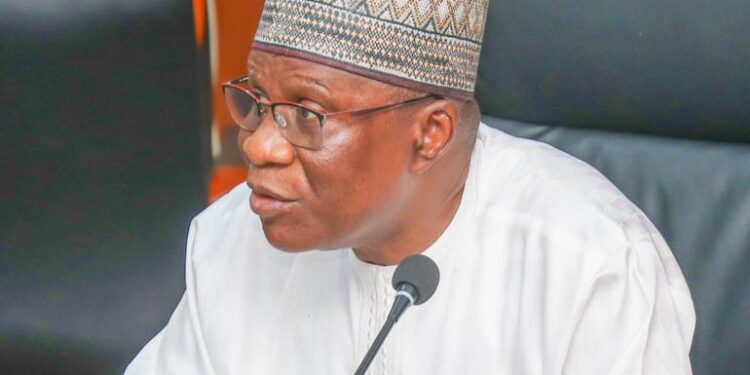The Minister of Regional Development, Engr. Abubakar Momoh, has warned that Nigeria’s vulnerability to climate change is escalating and posing significant threats to the country’s development and its people. The Minister stated this on the margins of the United Nations Climate Change Conference (COP29) in Baku, Azerbaijan. According to him, the Niger Delta, the region that produces Nigeria’s wealth, is witnessing accelerated climate impacts, with nearly complete loss of primary forests due to human activities, oil exploration and acid rain.
Speaking on the theme ‘Fostering Regional Synergies for Climate Resilience and Inclusive Development in Nigeria’, Momoh underscored the urgency of climate action.
A statement issued by Osigwe Omo-Ikirodah, Special Assistant to the Minister, stated that Momoh at the conference, showcased the ministry’s commitment to climate action and inclusive development. He outlined how climate challenges are manifesting across Nigeria’s six geopolitical zones and the Niger Delta region, affecting agriculture, infrastructure, public health, and livelihoods. This development is hampering efforts at battling food insecurity currently facing the country, and the world. For instance, the minister said that the North Central is experiencing rising temperatures and drought that threaten agricultural productivity, while water resources like the Niger and Benue rivers face pollution and erratic precipitation.
In the North East, he said, desertification and reduced rainfall are expanding the Sahara desert, displacing communities and exacerbating conflicts, while the North West is suffering from unpredictable rainfall which has led to severe flooding, with adverse effects on infrastructure and human settlements.
According to the minister, the South East is witnessing heavy rainfall that compounds the problems of gully erosion and landslides, resulting in loss of lives, property damage, and displacement, while the South South faces devastating coastal erosion, sea-level rise, even as oil pollution continue to degrade the region’s ecosystems and livelihoods.
He added that the South West is facing urban flooding, driven by inadequate drainage and rising sea levels, which he said poses significant risks to public health and economic productivity.
The minister is concerned that this development masks efforts by the authorities to mitigate the effects on the people and their livelihood. For instance, he presented the Niger Delta Climate Change Programme and Action Plan (NDRCCP-AP), a comprehensive document that addresses the unique vulnerabilities of the Niger Delta, proposing practical solutions to mitigate and adapt to climate change impacts.
“The Niger Delta is witnessing accelerated climate impacts, with nearly complete loss of primary forests due to human activities, oil exploration, and acid rain. This action plan prioritizes sustainable development, low-carbon growth, and poverty alleviation,” he stated.
Some of the key initiatives outlined in the NDRCCP-AP include sustainable community livelihood projects to empower small-scale farmers, mangrove reforestation for carbon sequestration and soil stabilisation and flood and erosion control projects with early warning systems as well as capacity building for stakeholders to enhance climate governance and response. He submitted that the plan also aligned with Nigeria’s commitments under the Paris Agreement, emphasising integrated adaptation and mitigation projects.
However, the minister said the government needs support, if the efforts must yield the desired results. Momoh, therefore, called for strengthened partnerships with local and international stakeholders to fund and implement the NDRCCP-AP.
“We cannot tackle this challenge alone. Climate action requires robust collaboration across governments, businesses, and communities,” he said.
The Minister emphasised the importance of transitioning to cleaner energy sources, addressing deforestation, and leveraging technology to build a resilient Nigeria.
He reaffirmed his ministry’s dedication to climate resilience and inclusive development.
“The effects of climate change are evident across Nigeria. Together, we must act decisively to protect our people, our environment, and our future,” he added.

